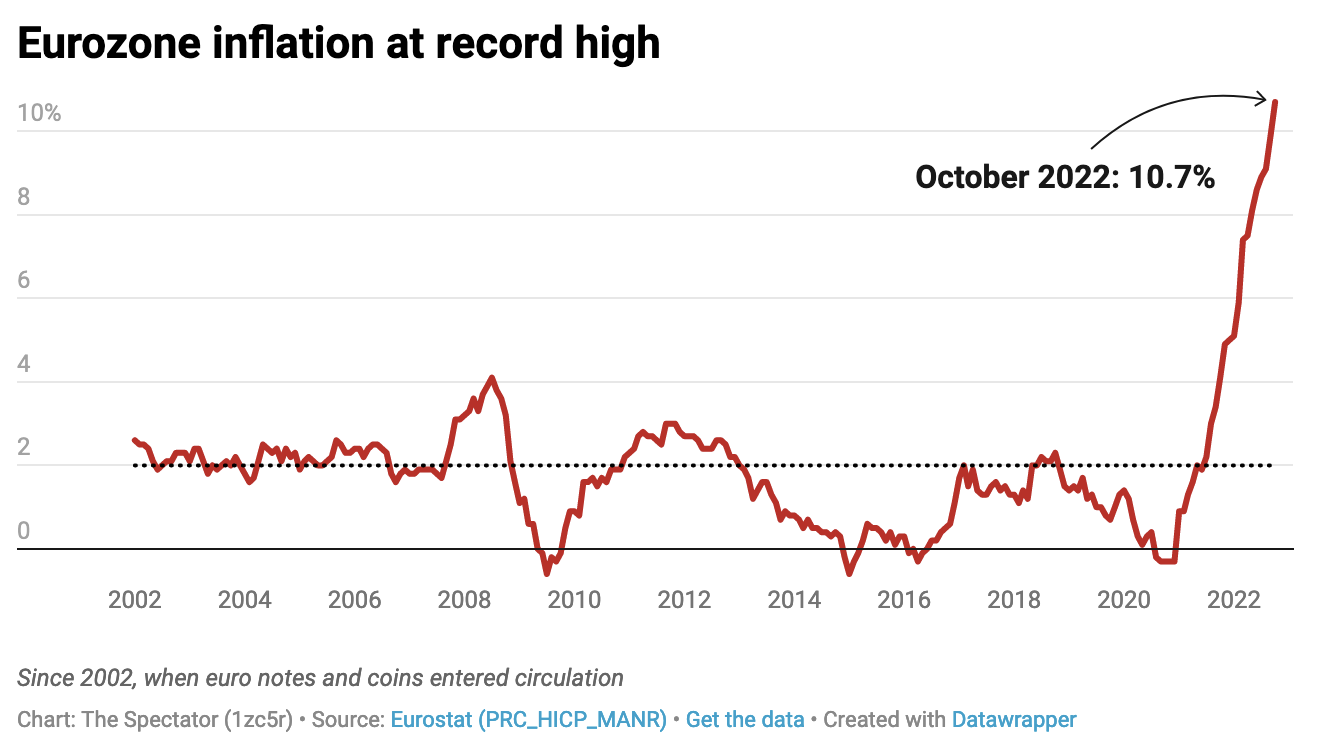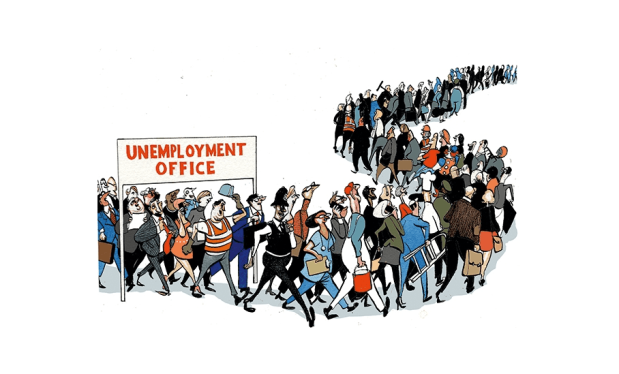Britain’s economic problems can, of course, be laid at the door of Brexit. We know this because it was asserted on a BBC podcast which went viral over the weekend – and no one would question the BBC’s objectivity. But maybe there ought just to be a scintilla of doubt in the heads of the staunchest remainers given this morning’s news that eurozone inflation has reached 10.7 per cent – even higher than Britain’s latest CPI figure of 10.1 per cent. Markets had been expecting Eurozone inflation to stay a little below the 10 per cent mark.

Far from Britain parting off from the rest of Europe and entering a death spiral, it is remarkable how Britain and the EU are converging in their respective economic crises. As for inflation, so for economic growth. The S&P’s Purchasing Managers’ Index (PMI) – a concept which is calculated and published by several organisations – for the eurozone in October stood at 47.1 (anything below 50 denotes a shrinking economy). This is virtually indistinguishable from the figure of 47.2 for the UK, which I reportedlast week. Across the eurozone, economic growth has come out a little stronger in Germany and a little weaker in France.
And for bond yields? Pretty much the same story. Bond yields in the eurozone have been surging all year, with the yields on ten-year bonds touching 3 per cent last week, half a percentage point below those in Britain. As in Britain, so in the eurozone: over-borrowed governments are being punished by investors for their failure to balance the books. And of course, soaring inflation has a lot to do with the energy crisis which is being felt across the continent.
Brexit, according to the Leave campaign, was supposed to be about seeking new economic and trading opportunities around the world, about decoupling Britain from the sluggish EU economy and hopefully switching to a trend closer to that of the US economy – which rose 2.6 per cent in the last quarter, way above Britain or the eurozone. So far, the hope of a newly independent UK economy trending towards higher growth has not been realised. But then neither has Britain descended into a lower trajectory of growth. The truth is that two years after Brexit, the UK economy is still very much moving in sync with the EU’s economy. We followed pretty much the same path through Covid – although the way UK GDP figures are compiled made the initial plunge seem worse but flattered the recovery. And now we are suffering the same stagflation.
It is pretty disappointing if you were hoping immediately for a bright new post-Brexit future. But no, Britain has not destroyed its economy, condemned to watch on the sidelines as the EU pulls ahead of us. The whole of Europe, Britain included, is facing a difficult recession and a sharp falling in living standards.
Got something to add? Join the discussion and comment below.
Get 10 issues for just $10
Subscribe to The Spectator Australia today for the next 10 magazine issues, plus full online access, for just $10.




















Comments
Don't miss out
Join the conversation with other Spectator Australia readers. Subscribe to leave a comment.
SUBSCRIBEAlready a subscriber? Log in